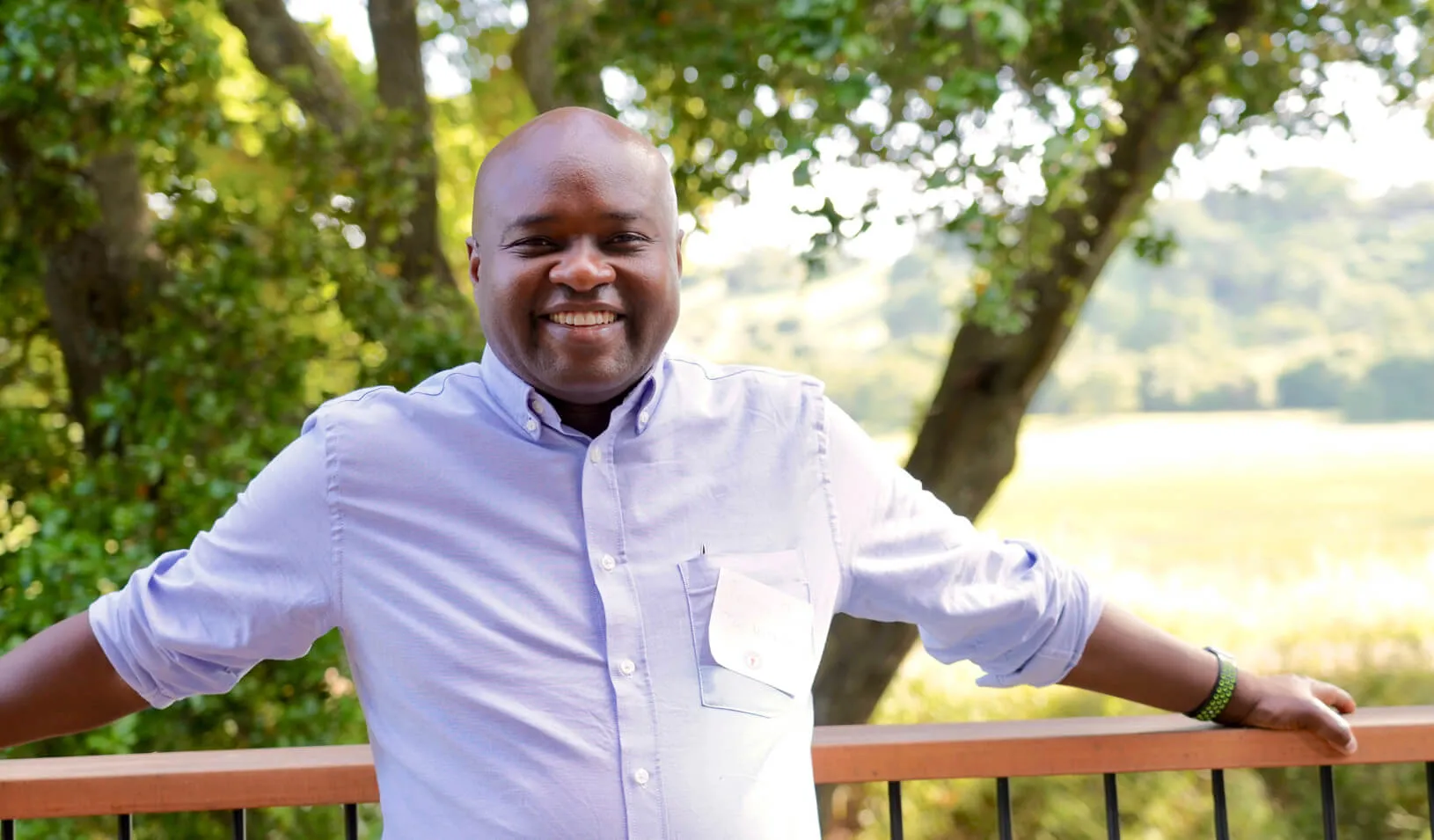May 30, 2019
Frank Omondi is a wildlife biologist turned entrepreneur. His desire to lead a business that makes a positive impact on the community led him to become the managing director of Ten Senses Africa, a fair trade cashew and macadamia nut processing company based in Nairobi, Kenya.
With a background in wildlife biology, Omondi realized he needed further training to help him continue to drive the company forward. That realization led him to join the Stanford Seed Transformation Program in 2016.
Stanford Seed is a one-year certificate program delivered by Stanford University through Stanford Graduate School of Business that operates in East Africa, Southern Africa, West Africa, and India. The program, which is designed exclusively for busy business owners and CEOs, provides management training, one-on-one support, and networking opportunities to growth-minded business leaders.
Following Omondi’s participation in the program, Ten Senses Africa doubled its sales, now provides 1 million cashew seedlings to support 30,000 local farmers, and employs 600 people, two-thirds of whom are single mothers. The company was able to expand to Tanzania with the support of the Seed Transformation Network, a group composed of past participants in the program.
“The program created a lot of trust between the participants,” said Omondi. “It is difficult to know anyone in Tanzania if you are based in another African country. Through the program, we were able to learn what other people were doing in those countries, which enabled us to have entry.”

Past Seed Transformation Program participants at the 2018 Global Summit in Nairobi, Kenya | Stanford Seed
Surveys of past participants of the Seed Transformation Program reveal the impact participants and their organizations have on their communities. After completing the program, 89 percent of participants grew their customers, 72 percent introduced a new product or service, 64 percent increased their revenue, and 50 percent expanded into new geographies.
“I’m inspired by the change participants are effecting in their communities,” said Darius F. Teter, executive director of Stanford Seed. “One organization’s growth and success can have a significant impact, and we’re thrilled to partner with promising entrepreneurs as they take their businesses to the next level.”
Participants work with Stanford GSB faculty to gain the essential business and leadership skills that will enable them to grow their companies and, in turn, positively impact their communities. Admitted participants:
- Create an action plan to grow and scale their business
- Get in-company support from trained facilitators who help introduce what they’ve learned to their management team and promote buy-in
- Develop relationships with like-minded leaders to share experiences and develop an ongoing peer-to-peer support network
- Receive pro-bono project-based consulting services from senior executives
For media inquiries, visit the Newsroom.



